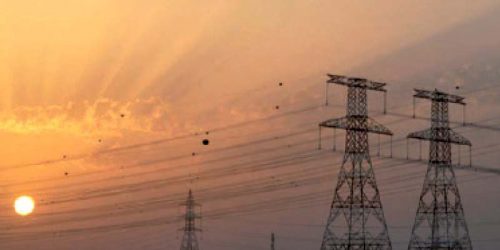ISLAMABAD:
As the power sector is plagued with poor governance on account of electricity theft and rampant corruption, the Cabinet Committee on Energy (CCOE) has given directives for expediting reforms in the sector to make it stable and sustainable.
In its meeting on Thursday, the cabinet body on energy, in addition to reviewing the implementation status of decisions taken, also reviewed the decision on governance reforms. The government is implementing a power sector reform plan covering various areas which include realigning generation costs, privatisation of distribution system, governance reforms in state-owned enterprises (SOEs), optimising operations to lower costs and regulatory reforms in the open market.
Sources said the governance structure of SOEs in the power sector had multiple issues. Some of the major issues include rampant corruption and theft in the distribution system, resulting in poor service delivery and inefficiencies.
Troubles
The power theft has led to trillions of rupees in circular debt and prolonged outages across the country.
The situation was aggravated by the prevailing culture of union interference, meritless placement of human resources, lack of career planning and shortage of human resources. The death and accident rate for employees was more than 40%.
The transmission system was replete with constraints and faced country-wide tripping. Work on the Integrated Generation Capacity Expansion Plan (IGCEP) and transmission system expansion plan had stalled.
Despite the increase in installed capacity, the capability of power transmission system had not been more than 18,000 megawatts.
The renewable energy plan had been stopped after December 2017. The Renewable Energy Policy 2016 was not extended after March 2018 and there was no such policy. The private sector and provinces have been working on power generation without any policy and in isolation.
Meanwhile, on the generation side, the sector was burdened with high cost of re-gasified liquefied natural gas (RLNG) and residual fuel oil (RFO), increasing circular dent and impact of rupee depreciation.
Govt efforts
Officials said the Power Division had taken these issues into consideration and was working to resolve them. In this regard, the division had taken a few initiatives including a countrywide campaign against power theft and corruption, removal of more than 20,000 hazards, merit-based postings and promotions.
The removal of constraints enabled the power sector to deliver more than 20,000MW of electricity to the system without tripping.
The Power Division had introduced a policy of postings in a new company on promotion and creating an effective complaint addressing system. It also managed to reduce load-shedding through reduction in theft, removal of major constraints to the transmission capacity, end of nationwide tripping of power system and resumption of stuck power transmission and grid station projects.
A new renewable energy policy had been prepared and concerns of provinces had been addressed to increase the share of renewables to 30% by 2030. Work on two LNG-based power plants was also in progress and a take-and-pay arrangement for a fourth RLNG plant had been approved by the cabinet.
Negotiations with the independent power producers (IPPs) had also started on reducing generation costs. Now, the government has decided to increase the capacity of Power Division with the creation of a technical directorate, headed by an expert in generation, transmission, distribution, regulatory, tariff and financial matters.
The CCOE meeting was chaired by Federal Minister for Planning, Development and Special Initiatives Asad Umar.
According to a statement, the committee reviewed the implementation status of cabinet’s decisions on the energy sector. It reviewed the circular debt reporting format, competitive marketplace for the electricity development plan, capacity charges for government-owned power plants, fuel cost optimisation for power plants and governance reforms in the power sector.
The committee also reviewed the status of bankable feasibility study covering technical, commercial and financial aspects to connect Thar coalmines with suitable stations on the Mirpurkhas-Khokhrapar section of Pakistan.







